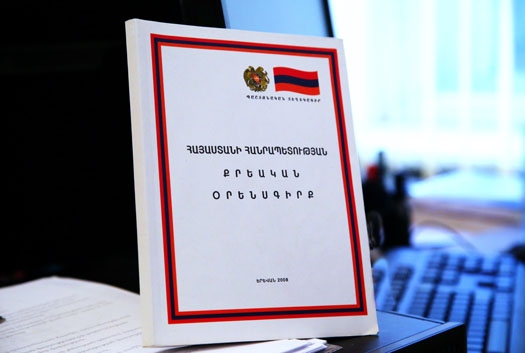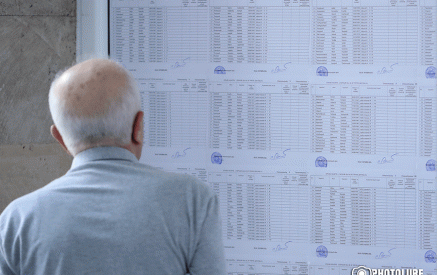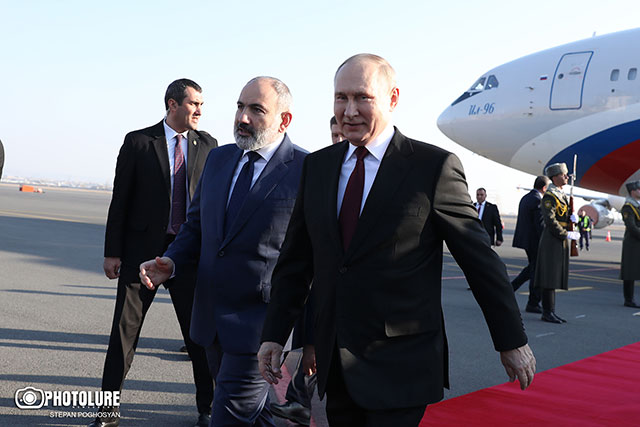On September 9, 2016 the Government of Armenia provided to a group of civil society representatives a document called “Statement on mutual agreement on defining organizational and technical mechanisms for oversight over the lawfulness of the electoral process in the new Electoral Code.” Though the announcements on the “pre-signing” of that document by civil society representatives do not correspond to reality (see attached), the initiative is substantial as it provides the following measures:
- publishing signed voter lists (with an exception of identification document data) in complete and accessible version;
- restoring by the Electoral Code the law requirement stipulating completion of all fields of signed voter lists (number of identification document, registration address, voter’s signature, commission member’s individual seal, and other notes);
- making all the signed voter lists accessible via internet by posting them on the website of the Central Electoral Commission (CEC) no later than the second day following the voting day, meanwhile providing the list of actual voters to the observers, proxies and candidates immediately after voting for them to be able to begin the verification;
- extending the time frame for submission of complaints based on the signed voter lists up to 11:00 o’clock of the third day after the voting day;
- checking the complaints of voting on someone’s behalf for the people who are absent from the country with the electronic border management information system (BMIS) used by border guards troops under the National Security Service of Armenia adjunct to Government;
- making all those articles that refer to crimes against electoral system stipulated by Criminal Code stricter by doubling the fines or leaving imprisonment as the only punitive measure, as well as by adding other punishment to the main punitive measure – restriction on holding any office for state or local government, as well as restriction on right to be member of electoral commission, proxy and observer;
- ensuring availability of video cameras in election precincts and ability to join them through the Internet, enabling online public oversight and a number of other mechanisms of the voting process.
It was voiced by numerous representatives of civil society a myriad times and in various platforms that publishing signed voter lists has no alternative in the Armenian context in ensuring fair electoral system and protecting electoral right, and that it is the only way to break the scheme of electoral fraud, practiced in Armenia for years.
Appreciating the political will to publish the signed voter lists, installing video cameras in polling stations and ensuring video recording and live broadcasts of the stages of voting and ballot counting through the Internet as well as to make legislative amendments regarding the above-mentioned important issues, we would like nonetheless to emphasize that, first, it in no way implies that we approve the Electoral Code of Armenia, adopted in May 2016, and, second, still political will is needed to enforce the legislative amendments.
As it was mentioned in civil society representatives’ statement of September 9, 2016, publishing the voter lists is a necessary but not sufficient condition to ensure that the elections will meet the principles of free and fair electoral right. The Electoral Code stil contains serious problems, such as the open proportional electoral system, in particular district lists, second stage of parliamentary elections, restrictions on formation of political coalitions, restrictions on observation missions and mass media representatives’ rights and additional mechanisms impeding their activity, which significantly threaten the conduct of free and fair elections in Armenia and the formation of government through the expression of people’s free will, hinder public oversight over electoral processes, as well as do not promote restoring public confidence and trust in the electoral institute and processes.
Read also
In view of a certain dialogue process on which this statement is based, we expect that the authorities will continue to work for improving the electoral legislation and the electoral system and will express political will so that during National Assembly’s autumn session alongside the agreed amendments of the Electoral Code, restrictions on public oversight will be lifted by restoring the rights of observers and mass media representatives at least in the level of the former Electoral Code – adopted in 2011, by defining a procedure for official registration of the observers’ findings and enabling observation organizations to file complains for violations of objective electoral rights. These are the minimal steps that are able to form the basis for public trust in the conduct of free and fair elections in the Republic of Armenia.
As a manifestation of political will and stable dialogue with the people, in particular for the above-mentioned prerequisites and safeguards to be ensured as well as to open a new page in the electoral system of the Republic of Armenia we suggest that the governing and non-governing political parties come to a political agreement ahead of 2017 parliamentary elections on the issue of including civil society representatives in CEC as a step to achieving the goal of CEC’s real independence.
“Collaboration for Democracy” NGO
“Europe in Law Association” NGO
“Foundation Against the Violation of Law” NGO
“Rule of Right” NGO
“Transparency International Anticorruption Center” NGO
“Yerevan Press Club” NGO

























































